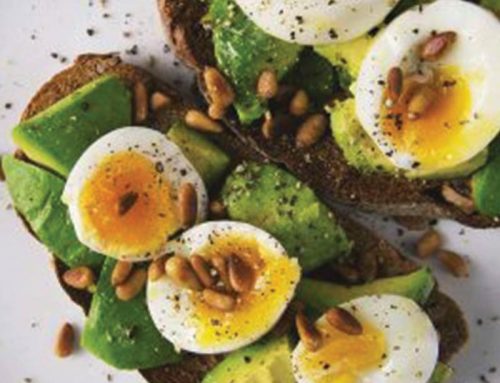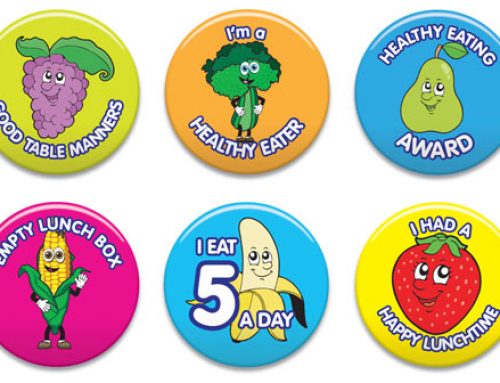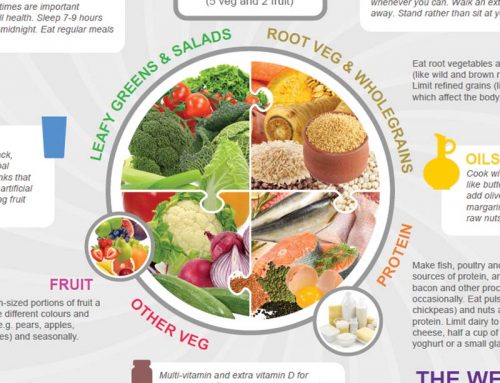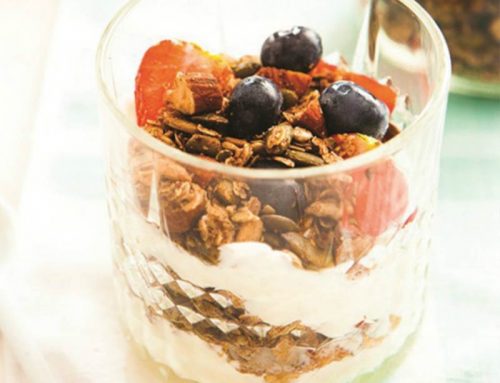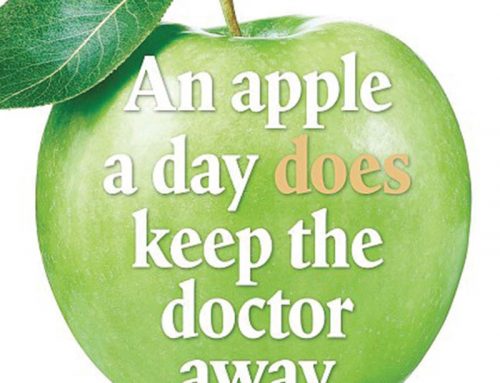Have you ever experienced a day when in the morning you felt fine, but after lunch, you felt down and tired? What if I told you that eating certain foods could improve your mood, provide uplifting energy and make you feel alert and motivated?
Whether you only feel blue from time to time or are prone to low mood or depression eating a diet high in ‘good mood foods’ and low in ‘ mood zapping foods’ can go a long way to balancing how you feel both physically, mentally and emotionally.
The key to understanding the connection between the food we eat and our mood and level of alertness lies in understanding a little about how the brain functions. The brain communicates by chemical substances (neurotransmitters) passed from one nerve cell to the next. Most neurotransmitters are made from the food we eat. One of the neurotransmitters that is most sensitive to diet and influential in affecting mood is serotonin, also known as the ‘happy hormone’. Our bodies produce serotonin from an amino acid called tryptophan which comes directly from food.
Serotonin is a calming and relaxing chemical. When produced, feelings of stress and tension decrease, and our sleep cycle is regulated. Women are three times as prone to low moods as men. Research suggests that the cause of this lies in the fact that women are more prone to low levels serotonin. A Serotonin deficiency can be brought on by many factors including hormone imbalances (e.g. PMS), stress, imbalanced blood sugar and nutritional deficiencies.
However, we can fight back! Below are some simple do’s and don’ts to help you banish those blues and take control over your mood:
1) Balance your blood sugar – Balancing your blood sugar is one of the most important steps in regaining control over your mood. A diet high in stimulants such as sugar and caffeine can cause sugar highs and sugar lows which in turn affects our mood. Excess caffeine and sugar can also rev up stress hormones in the body such as adrenaline and cortisol which can lead to feelings of anxiety and irritability. So, the first step in balancing mood is to reduce caffeine and sugar consumption.
2) Protein with every meal: I recommend that you eat a portion of protein with every meal and snack. Not only does protein help keep blood sugar levels balanced, it also contains the amino acid Tryptophan. As mentioned above, Tryptophan, found in protein rich food is the building block for serotonin production which is known as the ‘happy hormone’ and helps us feel alert and content. Some foods high in tryptophan include turkey, cottage cheese and nuts. However, in order for tryptophan to be converted into serotonin, it requires several other vitamins and minerals to do so which are mentioned below.
3) Increase B Vitamins – B vitamins play a crucial role in the production of serotonin. Studies have shown that a deficiency in B vitamins can lead to depression. Prolonged stress or anxiety can easily deplete our body stores of these vitamins leaving us open to low mood and anxiety so it’s important that we consume foods rich in B vitamins on a daily basis such as oats, brown rice, eggs and green leafy vegetables.
4) Omega 3 – Countries with higher rates of fish consumption generally have lower rates of depression. Oily fish are an excellent source of a particularly good fat called omega 3. Omega 3 naturally increases a potent mood lifting, anti-depressant neurotransmitter in our brain, called dopamine. It also slows the breakdown of serotonin. Dopamine makes you feel good, motivates you and helps you to deal with stress. Adding oily fish to your diet can also increase physical and mental alertness, focus and excitement! Aim to have oily fish about three times weekly or consider taking a good quality fish oil supplement.
5) Reduce alcohol – Excessive alcohol consumption has a profound effect on our mood for many reasons. It depletes B vitamins from the body, it interferes with our blood sugar balance and it alters the neurotransmitters which dictate our mood, sleep. Regular over consumption of alcohol is heavily associated with incidences of depression, anxiety and panic attacks. Avoid consuming more than 14 units of alcohol per week which amounts to about 7 good sized glasses of wine and avoid binge drinking.
6) Vitamin D – very few of us in Ireland achieve enough sunlight for our bodies to make adequate vitamin D (which is made in the skin directly), or eat enough vitamin D in our diets and this is known to be a critical factor in boosting mood. Consider taking a vitamin D supplement during the winter months and eat vitamin D rich foods such as eggs, green leafy vegetables and oily fish. Increasing your exposure to daylight also helps, try taking your exercise outdoors as much as possible.
7) Gut health – A vital aspect of a well functioning digestive system is its role in the production of serotonin – the body’s natural ‘happy hormone’. 95% of all serotonin is produced in the gut, not in the brain. Therefore, good digestion is crucial to the production and function of serotonin and that, in turn, plays a vital role in everything from our mental health to our ability to get a good night’s sleep. Keep your gut healthy by reducing the amount of sugar and alcohol in your diet, by avoiding the overuse of antibiotics and by eating plenty of gut healthy foods such as natural probiotic yogurt, onions, garlic, oats.
Top 10 Good Mood Foods:
- Turkey
- Cottage Cheese
- Eggs
- Bananas
- Brown Rice
- Oily Fish
- Nuts/Seeds
- Beans/Lentils
- Green Leafy Vegetables
- Dark Chocolate
Sample ‘Good Mood’ menu
Breakfast: Poached eggs on brown soda bread
Snack: Handful of nuts with a banana
Lunch: Tuna and chick pea salad
Snack: Cottage Cheese with blueberries
Dinner: Stir fried turkey and vegetables served with brown rice
Dessert: Couple squares of dark chocolate


